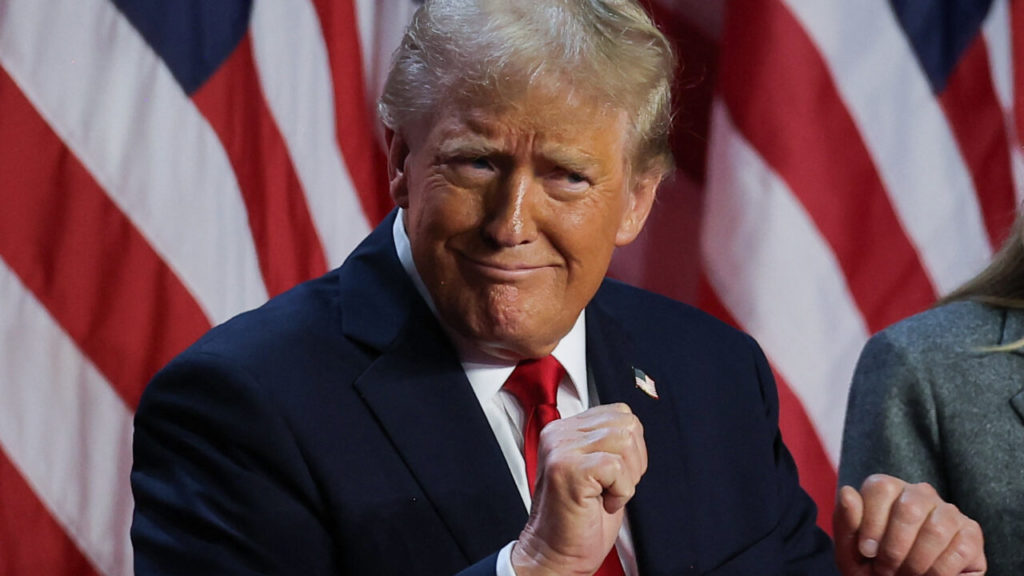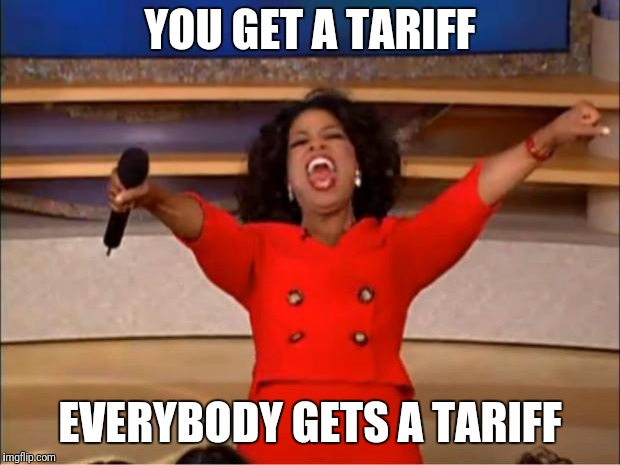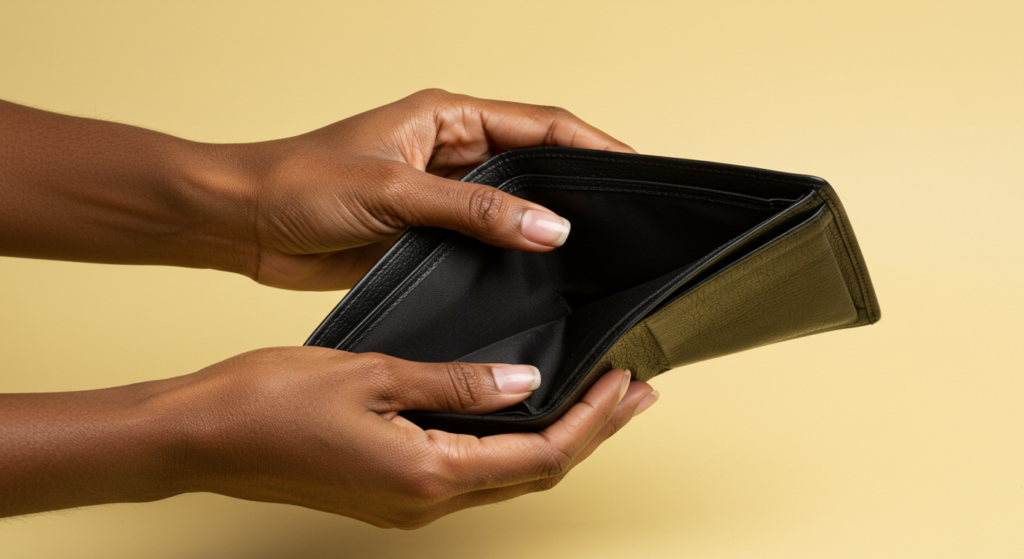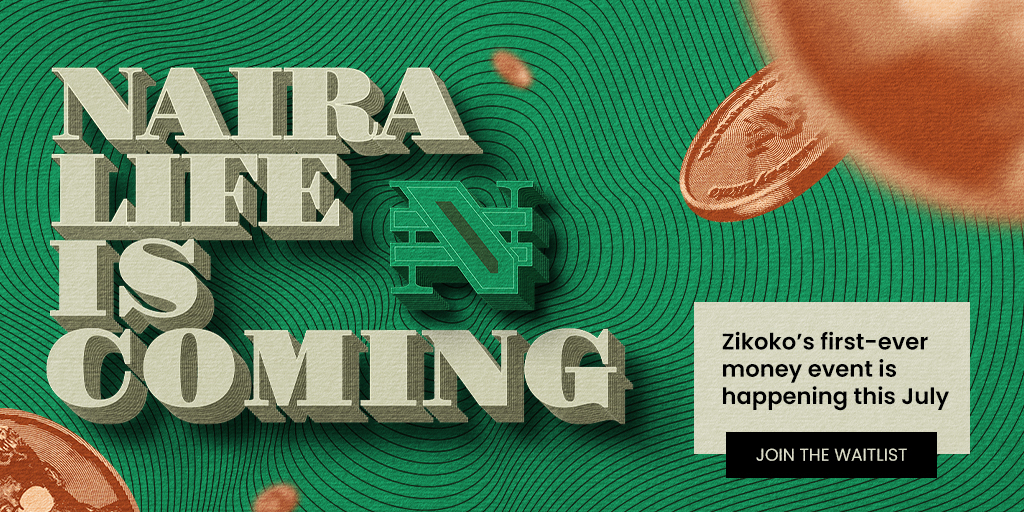
If you’ve noticed your timeline flooded with chatter about tariffs and trade wars lately, no, it’s not just another trending topic. On Wednesday, April 9th, the US was set to roll out a 14% tariff on most imports from Nigeria until a dramatic last-minute pause changed everything — at least for now.
But what exactly is going on, and why should you care? Let’s break down what this really means for you.
What’s going on here?
On April 2nd, Trump’s administration announced a 14% tariff on most Nigerian imports (excluding oil and gas) as part of what they dramatically called a “Liberation Day” announcement.
This is all tied to his “America First” trade policy that’s targeting countries with trade surpluses against the US. According to them, Nigeria has been engaging in “unfair trade practices” that harm US exporters, citing things like our import bans on beef, pork, and certain pharmaceuticals.
The tariffs were supposed to officially go into effect on Wednesday, April 9th, but in a dramatic last-minute reversal, Trump announced a 90-day pause on the implementation. Why? Even America’s economy started feeling the heat. US stocks were plummeting, and Treasury bonds were being sold off at alarming rates. As soon as the pause was announced, markets went green again.
Trump called it “strategic,” but it looks more like damage control. Were all the tariffs paused? No, only for countries that didn’t retaliate. China retaliated and is now subject to at least 145% tariffs on its US imports.
The question now is: will this temporary arrangement become permanent, or are we just waiting for the other shoe to drop?
The 90-day pause might allow for negotiations, but here’s what a 14% tariff hike means for Nigeria.
To put it in everyday terms: imagine your landlord suddenly increasing your rent by 14% because they don’t like that you refuse to let them store their meat in your freezer. That’s essentially what’s happening here but on a national scale.
Since 2000, most of Nigeria’s exports have entered the US duty-free under the African Growth and Opportunity Act (AGOA). Only a few of Nigeria’s exported products to the US were subject to U.S. import duties (a.k.a tariffs). Meanwhile, Nigeria’s tariffs on US goods are around 27%, creating an imbalance in trade benefits.
The tariff hike is basically Trump retaliating; his administration calls it reciprocal tariffs. And it’s not just Nigeria; under Trump, the US imposed a tariff of at least 10% on all imported goods. Everyone got a hit.

What exactly is a tariff?
A tariff is a tax that a country imposes on goods coming in from another country. It’s meant to make foreign products more expensive, so people are more likely to buy local.
Think of it like this: You’re trying to order food from Chowdeck, and the app suddenly adds an extra ₦2,000 delivery fee because the vendor is further away. Now, that rice looks a lot less tasty, and you start considering someone closer. That extra fee? That’s a tariff.
When the U.S. increases tariffs on Nigerian exports, our goods become more expensive for American buyers. That can reduce demand, squeeze Nigerian exporters, and lower our foreign exchange earnings.
Governments typically argue that tariffs:
- Protect local jobs.
- Boost local industries.
- Ensure national security.
But it usually leads to:
- Higher prices for consumers.
- Fewer options to choose from.
- Local businesses getting lazy because competition is reduced.
What does this mean for the Nigerian economy?
Here’s where things get serious. The tariffs themselves might seem to affect only people importing and exporting, but the ripple effects touch everyone.
1. Why oil isn’t safe either
Let’s be clear: There was NO direct tariff on Nigerian crude oil exports to the US.
Oil and gas (which make up about 90% of our foreign exchange earnings) are completely exempt from the 14% tariff.
But here’s the real problem – the broader trade war is creating global economic uncertainty, which is driving down oil prices. Since the announcement on April 2nd, crude oil prices have dropped to four-year low, hovering around $60 per barrel. Our 2025 national budget of $37 billion (with an $8 billion deficit) was based on oil selling at $75 per barrel.
That’s like budgeting your monthly expenses, assuming you’d earn ₦500,000, only to find out your salary is actually ₦400,000. Something must give.
As Finance Minister Wale Edun puts it: “It’s the price effect, the oil price effect that may affect Nigeria.” Translation: We’re not worried about the tariffs themselves; we’re worried about what they’re doing to global oil prices.

2. Naira under pressure
The naira is already feeling the heat. Despite the CBN pumping $668 million into the forex market in recent interventions, the naira still fell to ₦1,629/$. On Monday morning, the CBN sold $124 million at rates between ₦1,595 and ₦1,611 to stabilise the Naira after already offloading $197 million the previous Friday.
The naira is already weak, and the tariff increase imposed on Nigeria could make matters worse, particularly as foreign exchange earnings from the US decline due to the tariff.
Less dollar inflow, more naira strain.
3. Non-oil exports getting knocked
Last year, Nigeria exported non-oil goods worth about ₦323.96 billion to the US under the African Growth and Opportunity Act (AGOA), which allowed eligible Nigerian products to enter the US market tariff-free.
Products from the tariff-free entry include Urea (a major fertilizer), cocoa beans, refined lead, soya meals, and natural rubber. We also exported cashew nuts, aluminium, and rubber products.
With this new 14% tariff, those exports become less competitive in the US market.
This is particularly painful because successive Nigerian governments have been trying (and mostly failing) to diversify away from oil. Just when some businesses were making headway in exporting non-oil products, this trade barrier appears.

Why should you care?
Here’s how it touches your daily life:
- If you work in exports, your U.S. buyers might start looking elsewhere.
- Food prices are already high, and high tariffs might worsen things; imported agricultural inputs become pricier.
- It also exposes the fact that Nigeria hasn’t built enough export strength beyond crude oil, and that’s its real vulnerability.
- In the second quarter of 2024, Nigeria’s exports to the U.S. were dominated by oil products, making up 92.3% (₦1.703.9 billion) of total exports, while non-oil goods accounted for just 8% (₦142.9 billion).
- If you have investments in the Nigerian stock market or businesses that depend on imports or exports, your returns might be affected.
What can you do about it?
Yes, this is serious, but it’s not time to panic. Here are some practical steps:
1. Protect Your Savings
Consider diversifying how you save money. Having everything in naira might not be the best strategy right now. Look into dollar-denominated investments or assets that tend to hold value during economic uncertainty.
2. Be Strategic About Major Purchases
If you’re planning to buy something expensive that’s imported (like electronics or a car), you might want to move faster before prices increase further. A weaker naira means it takes more naira to buy the same amount of foreign goods.
3. Look for Opportunities
Every economic shift creates both losers and winners. Businesses focused on local production using local resources might benefit from reduced foreign competition. Keep an eye out for such opportunities if you’re an investor or entrepreneur.
Bottom Line
While Nigerian oil exports to the US aren’t directly hit with tariffs, Trump’s trade policies are still creating real challenges for Nigeria’s economy through lower global oil prices and barriers to our non-oil exports. This situation again highlights why the government needs to accelerate economic diversification efforts and improve quality standards to access more global markets.
For you as an individual, it’s time to be more strategic about your finances. The naira might continue to face pressure, and prices could keep rising. Plan accordingly.
Economic storms eventually pass, but those who prepare well suffer the least damage.

Click here to join the waitlist for Zikoko’s first-ever money event!
Also Read: MTN Increased Data Prices by 50%. But at What Cost?
Zikoko readers are currently giving feedback about us this year. Join your voice to theirs by taking this 10-minute survey.




